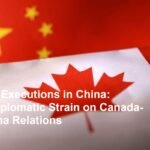U.S. President Donald Trump has escalated economic pressure on Venezuela by threatening to impose a 25% tariff on any country that purchases oil from the crisis-stricken South American nation. The move, announced in a recent statement, comes as part of the Trump administration’s ongoing campaign to isolate Venezuela’s socialist government, led by President Nicolás Maduro, which the U.S. accuses of authoritarianism, human rights abuses, and undermining democratic institutions. Trump framed the tariff as retaliation against nations supporting Venezuela, asserting that Caracas’ hostility toward American interests necessitates punitive measures.
Background: U.S.-Venezuela Relations
The U.S. and Venezuela have endured fraught relations for decades, but tensions intensified significantly after Maduro’s contested 2018 re-election, which Washington and over 50 other nations deemed illegitimate. The Trump administration recognized opposition leader Juan Guaidó as Venezuela’s interim president in 2019 and imposed sweeping sanctions, including an oil embargo aimed at crippling Maduro’s primary revenue source. Despite these measures, Venezuela has continued exporting oil—albeit at reduced levels—to allies such as China, Russia, India, and Turkey, often through shadowy networks to evade sanctions.
The Tariff Threat: Details and Implications
Trump’s proposed 25% tariff marks a significant escalation, directly targeting third-party buyers of Venezuelan crude. The policy would leverage U.S. economic influence to dissuade global trade with Venezuela, effectively forcing nations to choose between accessing the U.S. market or maintaining ties with Caracas. Analysts note that such a tariff could disrupt global oil markets, particularly if major importers like China or India resist compliance. Venezuela, already grappling with hyperinflation and a collapsed economy, relies on oil for over 90% of its export income; further restrictions could deepen its humanitarian crisis.
International Reactions
The announcement has drawn mixed responses. U.S. allies in Latin America, such as Brazil and Colombia, which support regime change in Venezuela, may back the measure. However, key trading partners like India and Turkey, which have defied prior U.S. sanctions, criticized the move as an overreach. China, Venezuela’s largest creditor and oil buyer, condemned the tariff as “unilateral bullying,” hinting at potential retaliation. Meanwhile, the European Union expressed concern over the humanitarian fallout, urging dialogue over coercion.
Legal and Economic Concerns
Legal experts question the tariff’s compatibility with World Trade Organization (WTO) rules, which generally prohibit discriminatory trade practices. The U.S. could justify the measure under national security exceptions, a controversial tactic previously used to justify steel and aluminum tariffs. Economists warn that reduced Venezuelan oil flows might tighten global supply, raising fuel prices—a risky outcome amid post-pandemic economic recovery. Additionally, U.S. refiners, which once imported heavy Venezuelan crude, could face higher costs if alternatives like Canadian oil become pricier.
Political Analysis
The tariff threat aligns with Trump’s “America First” approach, prioritizing maximum pressure campaigns over multilateral diplomacy. Critics argue the move risks alienating allies and undermining international trade norms, while supporters view it as necessary to weaken Maduro’s regime. With Venezuela’s 2024 elections approaching, the U.S. aims to fracture Maduro’s alliances, though past sanctions have failed to unseat him. Some analysts suggest the tariff is partly symbolic, meant to signal toughness ahead of the U.S. presidential election.
Venezuela’s Response
Venezuela’s government has yet to issue an official statement but historically labels U.S. measures as “economic warfare.” Maduro, bolstered by Russian and Iranian support, may seek to circumvent tariffs by expanding barter deals or smuggling operations. However, his regime’s capacity to withstand prolonged isolation remains uncertain as poverty and migration rates soar.
Conclusion
President Trump’s tariff threat underscores the U.S.’s hardline stance toward Venezuela, reflecting broader geopolitical rivalries with China and Russia. While the policy could further strain Caracas’ economy, its success hinges on global compliance—a challenge given shifting alliances and black market resilience. As tensions escalate, the international community faces renewed pressure to navigate between upholding democratic principles and mitigating collateral damage to Venezuela’s populace. The coming months will test whether economic coercion can achieve what diplomacy has not: a political transition in one of the world’s most oil-rich yet fractured nations.












